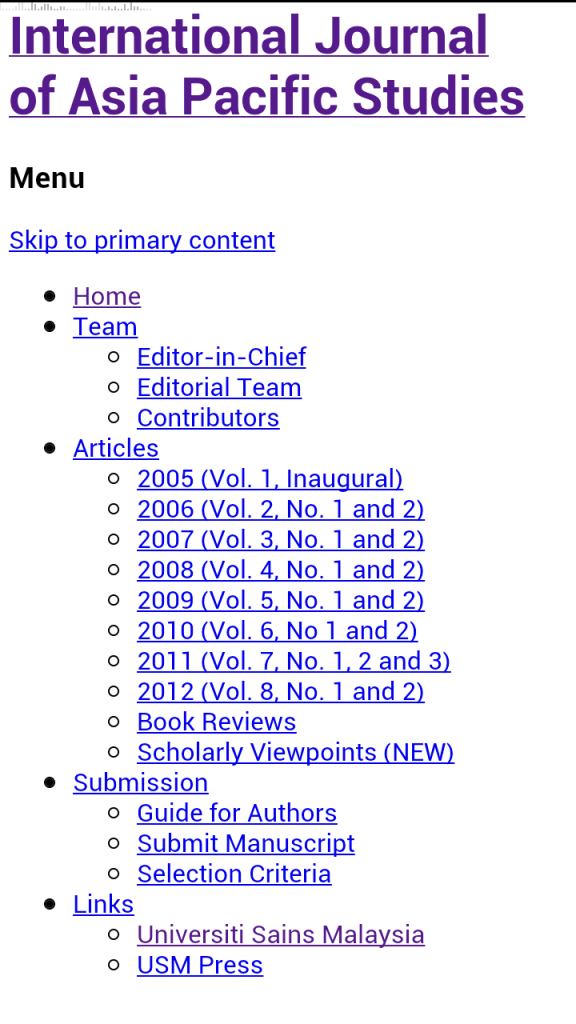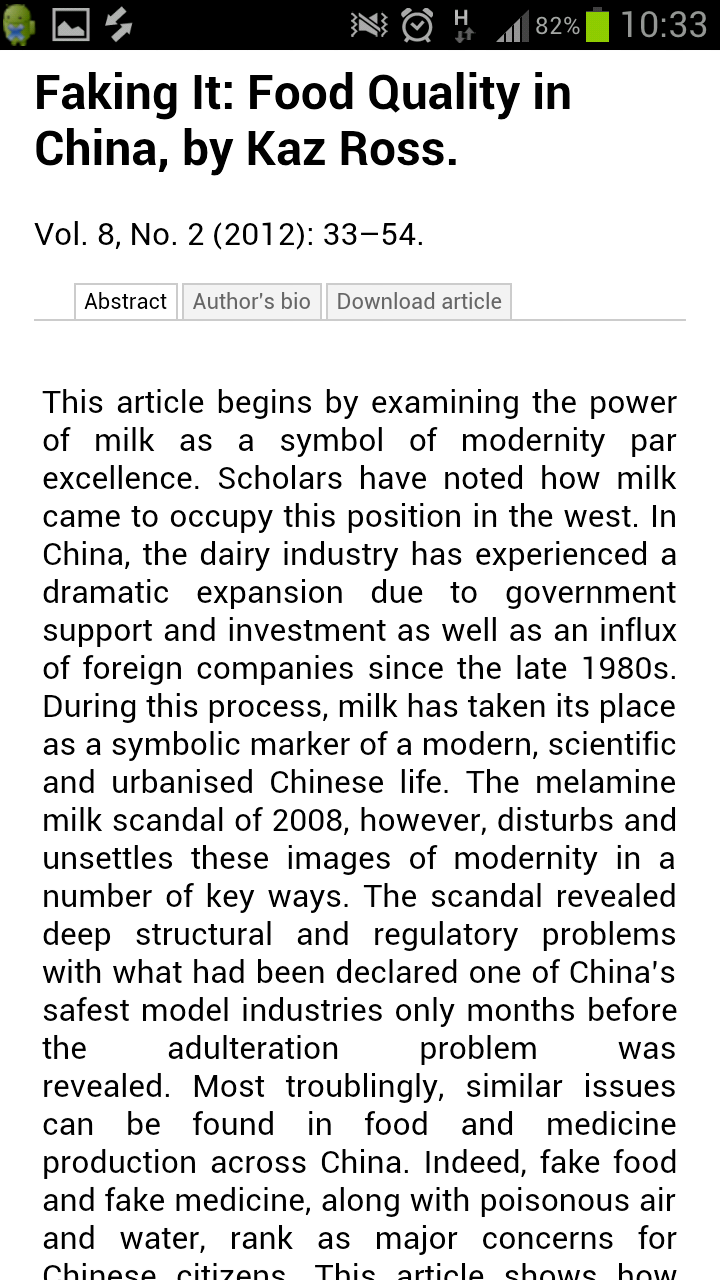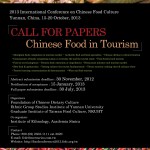Home » Latest Publication (Page 5)
Category Archives: Latest Publication
IJAPS Latest Issue, Vol.9 No. 2 Published
The International Journal of Asia Pacific Studies is pleased to inform the publication of the latest issue, Vol. 9, No. 2. The latest issue consists of 4 articles, including a book review.
Details of the current issue publication are following (click the titles to go to respective article page):
- Some Reflections on How to Approach Chinese Culture, by Shi Li.
- Covering Galas and Batu Sapi By-elections: Framing by Chinese Newspapers, by Md. Sidin Ahmad Ishak and Yang Lai Fong.
- Green Awareness Effects on Consumers’ Purchasing Decision: Some Insights from Malaysia, by Norazah Mohd. Suki.
- Book Review – Appropriate Illustrations for Appropriate Functions: The Taxonomy of Illustration, by Zailan Moris.
Call for Paper: Culture, Values and Justice
INTERNATIONAL AND INTERDISCIPLINARY CONFERENCE
Topic: Culture, Values and Justice.
Dates: May 21-23 2014.
Venue: University of Vaasa, Finland.
Sponsored by the University of Vaasa, Society for Indian Philosophy & Religion, and Institute of Cross-Cultural Studies and Academic Exchange.
Abstract: 150 words.
Submit before: August 10 2013.
Selected papers will be published (subject to editorial review).
Email to: chandanachak@gmail.com.
Date of proposal acceptance: Week after the proposal is submitted.
Subtopics:
Ethnic identity and culture, Personal identity in society, Society, culture and consumption, Social identification, Dynamics of group culture, Ethnic boundaries, Constructing and deconstructing ethnic identity, Evolution of society, Encountering different cultures, Indian civilization and society, Cultural shock, Society and effect of colonization, Media and society, Morality and society, Taoist view on morality, Enlightened anarchy, Values in Confucius ethics, Perfectionist and situational ethics, Spirituality and modern age, Humanism and positivism, Reductionist approach to moral responsibility, Archaeological approaches to society, Asian society and culture, Globalization’s effects on culture and values, Hybrid cultural systems, Hybrid ethical theory, Cultural meaning, Secularization of religion, Culture and postmodernity, Buddhist ethics, Buddhism and philosophy of deconstruction, Culture and values of modernity, Cultural roots of environmental problems, Uneven income distribution as a social ethical issue, The point of view of justice, Core values, traditions and justice etc.
Conference Director: Chandana Chakrabarti.
Advisory Board Members: Barbara Amodio (USA), Gordon Haist (USA), Robin Kar (USA), Elizabeth Koldzak (Poland),Tommi Lehtonen(Finland) Maria Marczewska (Poland), Debkumar Mukhopadhya (India), Rizwanur Rahman (India), Ming Shao (China), Andrew Ward (UK), Su-Chen Wu (Taiwan)
Papers from the Conference will be published subject to editorial review:
1. Books and papers: Magnus Publications.
2. Journal of Indian Philosophy and religion.
3. Interdisciplinary Journal.
Papers from our last four conferences have been published by the Cambridge Scholars Press and by Magnus Publications.
If you are interested to submit your manuscript for book or paper, please contact Dr. Chandana Chakrabarti and send book proposal.
Call for Papers: Chinese Studies Association of Australia Biennial Conference
Call for Papers: Chinese Studies Association of Australia Biennial Conference, July 10-11, 2013, Hobart, Tasmania, Australia
– – – – – – – – – – – – – –
Chinese Studies Association of Australia – 13th Biennial Conference
“探尋之旅” – Journeys
July 10-11, 2013
University of Tasmania
Hobart, Tasmania
Call for Papers (deadline April 12 2013)
The Chinese Studies Association of Australia is the peak body in Australia for Chinese Studies. Its biennial conference is the opportunity for scholars to share their expertise and current research among peers at the highest level in an atmosphere that is both convivial and galvanizing of new ideas and knowledge about China.
The CSAA is pleased to invite colleagues to submit paper proposals for the biennial CSAA 2013 conference in Hobart, Tasmania.
The theme of the conference is 探尋之旅, which we translate simply as “Journeys”. The phrase intends to capture conceptual links between Tasmania as a place for scholars to come and evocative ways of thinking about China. We invite participants to reflect upon journeys across territory and through time that have been undertaken by people, objects, ideas and words in the Chinese world, and the transformation that those things have undergone.
As in previous meetings of the CSAA, we encourage contributions from all disciplines and points of view, either as individual papers or in coherent panels. We welcome innovative concepts for panels, including themes and texts presented in dialogue with each other or contrasting readings of common material by panel members.
The conference will be held at the Old Woolstore Hotel conference venue in downtown Hobart, providing both affordable accommodation and professional conference facilities.
In addition, the conference will include a special event at MONA – the Museum of Old and New Art.
Information about the conference, including submissions, is available at the conference website.
For further information, please contact Dr Mark Harrison at the University of Tasmania at mark.harrison@utas.edu.au.
IJAPS Latest Issue, Vol. 9, No. 1 (2013) Published
We are pleased to announce that the latest issue of the International Journal of Asia Pacific Studies (IJAPS), Volume 9, Number 1 is now published and all articles are accessible and available for download.
This latest issue comprises three main sections: A) Thematic Issue on Music in Asia, guest edited by Joshua Paul Dale, comprising five articles; B) Featured Article (one article); C) Book Review; and D) Scholarly Viewpoints.
Details of the current issue publication are following (click the titles to go to respective article page):
A. Thematic Issue on Music in Asia:
- Introduction to Thematic Issue on Music in Asia, by Joshua Paul Dale (Guest Editor).
- Affective Resistance: Objects of Korean Popular Music, by Timothy Gitzen.
- Social and Political Effects of Pop Bali Alternatif on Balinese Society: The Example of “XXX,” by Kaori Fushiki.
- Theorising Hip-Hop and Street Dance in the Philippines, by J. Lorenzo Perillo.
- The Philippine Rondalla: A Gift of Musical Heritage in a Migrant Context, by Kim Rockell.
- Ritual Village Music and Marginalised Musicians of Western Orissa/Odisha, India, by Lidia Guzy.
B. Featured Article:
- Politics of Development and Articulation of Indigenous Identity: The Formation of Munda Identity in Barind, Bangladesh, by Shaila Sharmeen.
C. Book Review:
- Book Review – The Factory of the English East India Company at Bantam, 1602–1682, by Barbara Watson Andaya.
D. Scholarly Viewpoints:
Letter from Editor-in-Chief
Ooi Keat Gin, Editor-in-Chief, Int. Journal of Asia Pacific Studies (IJAPS).
First and foremost I would like to wish a Happy New Year to each and every one of you. May the year 2013 bring prosperity, happiness and health to you and your loved ones.
2012 has been an exciting year for the journal with a number of major milestones achieved. In July 2012, we rolled out a new website with enhancement on both front-end and back-end features. This new website was especially designed to help maximise content discovery through the Internet, in particular, search engines.
To cultivate enrichment of the journal’s contents, a new section, called Scholarly Viewpoints was inaugurated in the June 2012 that puts into perspective opinions of senior scholars in their areas of expertise and beyond.
A mobile version website was also released in November that allowed users to have seamless access to the journal’s website from major, network-enabled smart phones. Thereafter there was the release of beta live support that facilitates real time chat between website visitors and the site administrator.
We are extremely excited to embrace the year 2013 and to attain new milestones. We have lined up plans and strategies to take the journal into a new level such as making its contents available on mobile app market including App Store and Google Play.
To all our authors, your contribution is much appreciated. We very much value your time and effort in creating quality publications and enriching the global scholarly community. We would be delighted to hear updates of your latest works and research undertakings, and we highly welcome more manuscript submissions from you.
To all our reviewers, we expressed our gratitude for your efforts in facilitating the journal’s avowed mission in streamlining publications of the highest scholarship. Your assistance has indeed been exceedingly helpful in contributing to our decision-making process with regards to submitted manuscripts. We hope of receive your continual support in the near future. Moreover we take this opportunity to welcome your manuscript contribution.
Warm appreciation is extended to our editorial board members who have been generous in recommending ways to develop and uplift the journal to greater heights of excellence.
Happy New Year!
Sincerely,
Professor Ooi Keat Gin
Editor-in-Chief, Int. Journal of Asia Pacific Studies
Tips to Authors: How to Promote Your Journal Articles
How to promote journal articles
Promoting your journal article is imperative to maximise the exposure, enhance the discoverability and increase engagement with readers and other academics. Together with the publisher, as an author, you can help to promote your newly published articles via the following:
Institutional webpage.
Provide the link of your latest article in your institutional website. The webpage visitors who view your profile will be able to see your latest research and publications.
Social media.
The rise of the social media has also profoundly affected the publishing fraternity. More and more users have chosen the social media platforms as a way of sharing. Social media sharing helps foster convenient dissemination of information, which can be achieved within a short time. You can share your article in major online social media platforms including Twitter, Facebook, LinkedIn and so on.
Utilise scholarly networking and reference platforms.
A scholarly or academic networking platforms such as Academia.edu, MyNetResearch, ResearchGate, Mendeley and so on are indeed useful as they help bring scholars of common areas of expertise close together.
Press Releases.
If your article involves a new, significant or important discovery, consider linking up with media organisations for a press release. This brings your work to the mainstream media.
Blog.
If you keep a personal blog, you can get your blog readers updated with the list of your most recently published articles and the development in your area of research. Linking your article in your personal blog can vastly enhance the discoverability. Discuss briefly about the article and how the users might benefit from it.
Add to reading list or assignment.
Add your article (or the journal your article is published) as essential reading to your students. You may also create related assignments, e.g. review of the article, or have them discussed about the write up in class.
Add to your signature.
Announce your latest publication underneath your signature. Provide a link where the article can be downloaded/viewed.
IJAPS Mobile Browsing Made Easy on Smart Phones
We are delighted to announce the release of the journal’s mobile website (version 1.0), which will make website browsing using a smart phone a smooth experience. This mobile version website is available for access with major smart phone models.
The newly-launched “mini” version site aims to showcase the most essential essence of the journal’s website—its rich contents—to on-the-move readers.
 IJAPS mobile version site works with most mobile operating systems, including iOS, Android, Windows and Symbian, etc., across a wide range of phone models, providing readers with a user friendly, light and easy browsing experience.
IJAPS mobile version site works with most mobile operating systems, including iOS, Android, Windows and Symbian, etc., across a wide range of phone models, providing readers with a user friendly, light and easy browsing experience.
[Note: Tablet-sized mobile OS e.g., iPad and Galaxy Tab will still show the full desktop version due to better experience in full form.]
How does it work?
Through the mobile phone browser, users can visit the usual IJAPS URL.
No configuration is required at the user’s end as the website back-end system intuitively detects presence of mobile browser and strips off the web drop-down menu into a responsive, clean text-based-navigation style.
Also, users who wish to revert to the original desktop site can do so through a click of a button.

For maximised reading experience, users can integrate the use of cloud-based storage and notes service providers (e.g., Dropbox, Goodreads, Evernote, DocsToGo, etc.) to save their favourite contents and download for later read.
Asia Pacific Research Unit (APRU) Eminent Scholar Series 2012
The Asia Pacific Research Unit (APRU) is proud to announce its upcoming Eminent Scholar Series 2012, featuring a talk by Professor Dr Hans-Dieter Evers.
Event details:
Date: 8 November 2012 (Thursday)
Time: 10am-12pm
Venue: Meeting Room II, Building C-20, School of Humanities, Universiti Sains Malaysia, Penang, Malaysia.
Speaker: Professor Dr Hans-Dieter Evers. Centre for Policy Research & International Studies (CenPRIS), Universiti Sains Malaysia.
Introduction:
The South China Sea has attracted considerable attention among politicians, journalists and scholars since it has become a contested maritime space. Most works concentrate on conflicts and negotiations to resolve the ensuing issues. In this paper a cultural theory will be applied to stress the importance of conceptions of space found in different cultures. The South China Sea is defined as “mediterranean”. By comparing it to other maritime spaces, like the Baltic and the Mediterranean Sea, lessons will be drawn from the “longue durée” of history, as analysed by French historian Fernand Braudel.
About the speaker:
 Hans-Dieter Evers, emeritus Professor of Development Planning and Senior Fellow, Center for Development Research (ZEF), University of Bonn (on leave) is Visiting Professor, Centre for Policy Research and International Studies (CenPRIS), Universiti Sains Malaysia. Professor Evers taught sociology at Monash University, Melbourne, Australia; at Yale University, where he was also Director of Graduate Southeast Asia Studies; University of Singapore (Head of Department of Sociology); and Bielefeld University (Dean). He also served as Visiting Professor at the University of Indonesia, Gadjah Mada University, Universiti Kebangsaan Malaysia, Universiti Sains Malaysia, the EHESS (Paris), Trinity College (Oxford), the University of Hawai’i, National University of Singapore, and as Eminent Visiting Professor at Universiti Brunei Darussalam.
Hans-Dieter Evers, emeritus Professor of Development Planning and Senior Fellow, Center for Development Research (ZEF), University of Bonn (on leave) is Visiting Professor, Centre for Policy Research and International Studies (CenPRIS), Universiti Sains Malaysia. Professor Evers taught sociology at Monash University, Melbourne, Australia; at Yale University, where he was also Director of Graduate Southeast Asia Studies; University of Singapore (Head of Department of Sociology); and Bielefeld University (Dean). He also served as Visiting Professor at the University of Indonesia, Gadjah Mada University, Universiti Kebangsaan Malaysia, Universiti Sains Malaysia, the EHESS (Paris), Trinity College (Oxford), the University of Hawai’i, National University of Singapore, and as Eminent Visiting Professor at Universiti Brunei Darussalam.
His current research is concerned with conceptions of space, maritime studies, knowledge clusters and ASEAN knowledge societies. He has published a large number of refereed journal articles and book chapters. He is co-editor of Beyond the Knowledge Trap: Developing Asia’s Knowledge-Based Economies (New Jersey: World Scientific 2011), The Straits of Malacca (Berlin: LIT 2008), Southeast Asian Urbanism: The Meaning and Power of Social Space (Singapore: ISEAS/McGrawHill 2000; translated as Urbanisme di Asia Tenggara. Makna dan Kekuasaan dalam Ruang-Ruang Sosial [Jakarta: Yayasan Obor Indonesia, 2002]).
About APRU
The Asia-Pacific Research Unit (APRU) of the School of Humanities, Universiti Sains Malaysia undertake to run a series whereby prominent scholars from the humanities and social sciences are invited to participate in a programme that primarily aim at enhancing the university in the international scholarly community.
The APRU Eminent Scholar Series possesses manifold objectives calculate to benefit the various non-science schools and institutes in particular and the university in general. The Series seek to bring into contact internationally renowned scholars to interact with the university’s community.
All are cordially welcome to this talk.
To know more about APRU’s activities, click here.
IJAPS Online Manuscript Submission Illustrated
Submitting a manuscript to the International Journal of Asia Pacific Studies (IJAPS) can be done through the journal’s online manuscript management system. Created in 2010, this system facilitates submissions, reviews and decision making process easily and conveniently.
Most processes and procedures in submitting the manuscript online are self explanatory. However, if you are a new author and wish to be guided in ensuring a smooth registration and submission process, please refer to the illustrated guidelines below:
To make your manuscript submission, go to IJAPS manuscript submission homepage. If you are submitting as a first time author, please register as a new user (through “Register here” link shown below).

Fill up all the required fields during the user registration process including names, email, address, user ID and password. Click “Finish” to complete your registration.

Once your account is created, log in to start making your submission.

Click “Author Center”.

You will reach author’s panel. You can now make a new manuscript submission using the link under the “Author Resources”, as illustrated below. Click the link highlighted in red.

Fill up all the required fields to continue proceeding to the next step. You may leave the optional fields blank. Once you are done on each page, click “Save and Continue”.

At step 5 of submission (figure below), all documents should be uploaded accurately and accordingly. These documents may include: Title Page, Main Document, Figures, Tables, etc. Note that figures and tables must be submitted separately from the text. Ensure that the correct File Designation is selected for each uploaded file.
During the review process, all of these documents will merge into one single document for the reviewer’s expedite. Since this is a blind-review journal, ensure that in each of the document uploaded, no details about you (the author) are disclosed. Click “Upload Files” when you are ready. Depending on file sizes, waiting time may vary.

If you need to edit, delete or replace files, you can do it at the next screen (figure below).
Here, you will also notice HTML and PDF buttons underneath. Each of these two buttons need to be clicked (once at a time) to create a corresponding HTML and PDF proofs. You will not be able to proceed to the next step without following this process.

If everything is in order, click “Save and Continue”. We are almost there.
You will view a summary of your submission process. To confirm your submission, click “Submit”.

Congratulations, your manuscript is now submitted!
Call for Papers: 2013 International Conferences on Chinese Food Culture
In conjunction with the International Conferences on Chinese Food Culture to be held in Yunnan, China on 15–20 October 2013, the organizers cordially invite submission of papers on the theme of Chinese Food in Tourism.
Subtopics:
Food Festival and Tourism • Aboriginal foods: adaptation in tourism market • Historic food: attraction or impediment • Slow food & agritourism • Authentic food and local specialties • Chinese drinks in cultural tourism • Restaurant industry and tourism market • Theme tourism: cooking class & culinary show • Tourist learning: communication and dissemination • Local street food/ market food and tourism • Wine and food tourism • Food in travel programs • Tasting culture: The tourist fundamentals • Connoisseurs of foods: Comparing cuisine in everyday life and the tourist trade •
Details:
- Abstract submission deadline: 30 November 2012
- Notification of acceptance: 15 January 2013
- Full paper submission deadline: 30 July 2013
Organizers:
- Foundation of Chinese Dietary Culture
- Ethnic Group Studies Institute of Yunnan University
- Graduate Institute of Taiwan Food Culture, NKUHT
- Institute of Ethnology, Academica Sinica (Co-organizer)
Contacts:
- Phone: 886 (02) 2503-1111 ext. 5620
- Email: fcdc@mercuries.com.tw
- Website
- Official brochure: Click the image below for full size image brochure.


